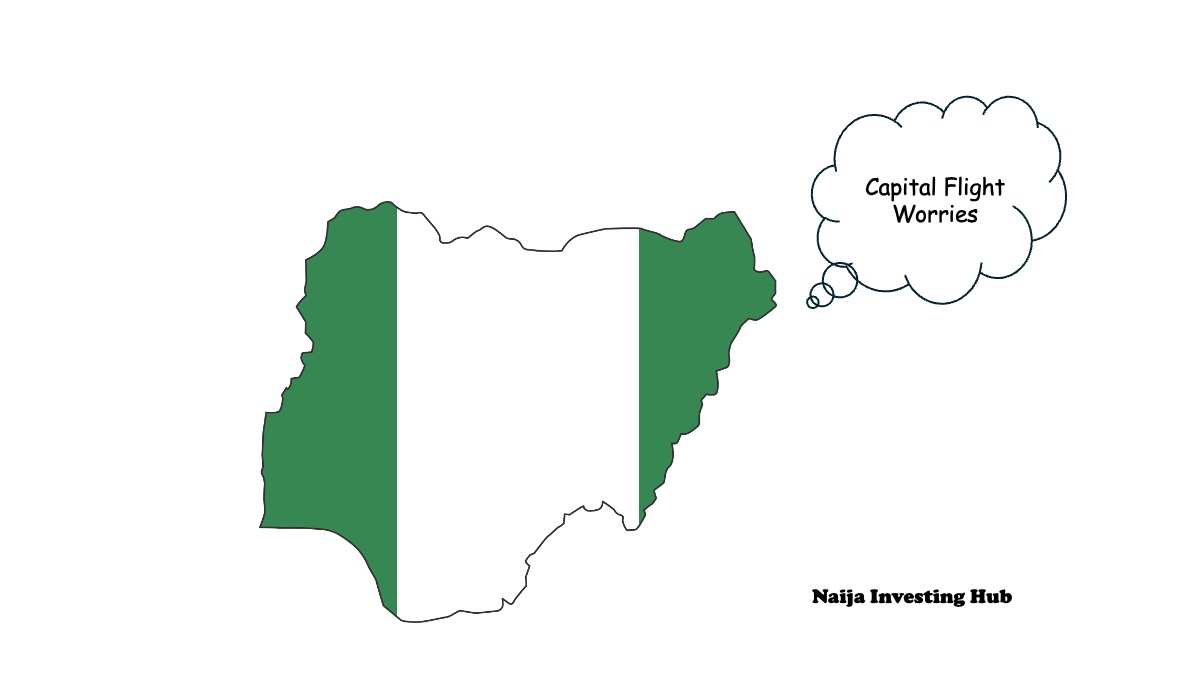Nigeria’s economy could face heightened capital flight risks in 2025 as US Treasury yields remain elevated, attracting global investors toward dollar-denominated assets. The persistent hawkish stance of the US Federal Reserve has driven bond yields to multi-year highs, making emerging markets like Nigeria less attractive to foreign investors. For Africa’s largest economy, this trend poses significant challenges, including forex shortages, increased inflation, and reduced investor confidence.
The Link Between US Yields and Capital Flight
Why US Yields Matter
US Treasury yields are considered a global benchmark for risk-free returns. When these yields rise, they provide investors with a higher return for minimal risk, often diverting capital from emerging markets into US assets.
How It Impacts Nigeria
- Reduced Portfolio Inflows:
- Rising US yields make Nigerian equities and bonds less appealing compared to US Treasury securities, leading to a slowdown in foreign portfolio investments.
- Investors may offload Nigerian assets, further pressuring the naira.
- Stronger Dollar Effect:
- A rising Dollar Index, spurred by higher yields, increases the cost of servicing Nigeria’s dollar-denominated debt and imports, exacerbating forex challenges.
Economic Risks for Nigeria
1. Forex Reserves Under Pressure
- Nigeria’s external reserves have been dwindling due to declining oil revenues and increased import demands. Elevated US yields could accelerate outflows, reducing the CBN’s capacity to stabilize the naira.
2. Currency Depreciation
- The naira, already under strain, could face further depreciation as foreign investors convert their holdings into dollars to seek safer returns in the US.
3. Inflationary Pressures
- Depreciation of the naira will increase the cost of imports, pushing up inflation, which stood at 34.6% in late 2024.
- Higher costs for essential goods, including food and fuel, would worsen the economic burden on households.
4. Elevated Borrowing Costs
- Nigeria relies on international markets for external financing. Elevated US yields will lead to higher borrowing costs, compounding the country’s fiscal challenges.
Sectors Most at Risk
1. Financial Markets
- The Nigerian Stock Exchange (NGX) could see reduced liquidity and valuation declines as foreign investors exit.
- Banking and financial institutions, which depend on forex liquidity for trade finance and external operations, will feel the ripple effects.
2. Consumer Goods and Manufacturing
- Import-dependent industries will face higher costs due to currency depreciation and reduced foreign capital inflows.
3. Infrastructure and Development Projects
- Major government projects reliant on external financing may face delays or cancellations as borrowing costs rise.
Policy Challenges for Nigeria
1. Managing Forex Demand
The Central Bank of Nigeria (CBN) faces mounting pressure to meet forex demands for imports and debt servicing. However, limited reserves restrict its ability to stabilize the naira effectively.
2. Balancing Monetary Policy
- Interest rate hikes by the CBN could help attract capital back into Nigeria, but they risk stifling domestic investment and increasing the cost of borrowing for businesses and consumers.
- Maintaining the current rate of 27.5% may not be sufficient to counteract the outflows triggered by high US yields.
3. Fiscal Constraints
Nigeria’s high debt-to-GDP ratio (37% as of 2024) and rising debt servicing costs leave little fiscal space for stimulus measures to support the economy.
Expert Recommendations
To mitigate the risks of capital flight, experts suggest a mix of monetary, fiscal, and structural reforms:
1. Boosting Non-Oil Exports
- Diversifying the export base can help generate forex earnings, reducing dependency on volatile oil revenues.
- Strengthening trade within the African Continental Free Trade Area (AfCFTA) could provide new markets for Nigerian goods.
2. Encouraging Domestic Investment
- Providing incentives for local investors to participate in the equity and bond markets can offset the impact of reduced foreign inflows.
- Policies to attract diaspora investments, such as offering diaspora bonds, can supplement capital needs.
3. Enhancing Forex Stability
- Transparent forex policies and predictable exchange rate regimes are essential for restoring investor confidence.
- Introducing hedging tools and derivative instruments can help businesses manage currency risks effectively.
4. Strengthening Financial Market Infrastructure
- Deepening the domestic capital market through innovative instruments like green bonds and sukuk can attract new classes of investors.
- Improving liquidity in the secondary markets will enhance investor confidence and participation.
5. Structural Reforms
- Streamlining public expenditures and reducing fiscal leakages will free up resources to cushion the economy against external shocks.
- Increasing local production capacity for import substitutes can reduce forex demand and alleviate inflationary pressures.
Opportunities Amid Risks
1. Attracting Long-Term Investments
While short-term capital flight is a concern, Nigeria’s large consumer market and growth potential continue to attract long-term investors in sectors like fintech, agriculture, and renewable energy.
2. Leveraging Diaspora Contributions
A strong dollar increases the purchasing power of Nigerians abroad. Encouraging diaspora investments in infrastructure, real estate, and startups can provide much-needed capital inflows.
3. Exploring Regional Trade
Expanding trade partnerships within Africa can create buffers against global financial shifts, reducing Nigeria’s reliance on Western capital markets.
Conclusion
The persistent rise in US bond yields poses significant capital flight risks for Nigeria in 2025, threatening to exacerbate forex shortages, currency depreciation, and inflation. While these challenges are substantial, they also present an opportunity for Nigeria to implement long-overdue structural reforms and diversify its economic base.
By prioritizing non-oil exports, stabilizing forex policies, and enhancing financial market infrastructure, Nigeria can mitigate the immediate risks while laying the groundwork for sustainable growth. As global economic conditions evolve, proactive policy measures and strategic investment will be key to navigating this period of uncertainty.
